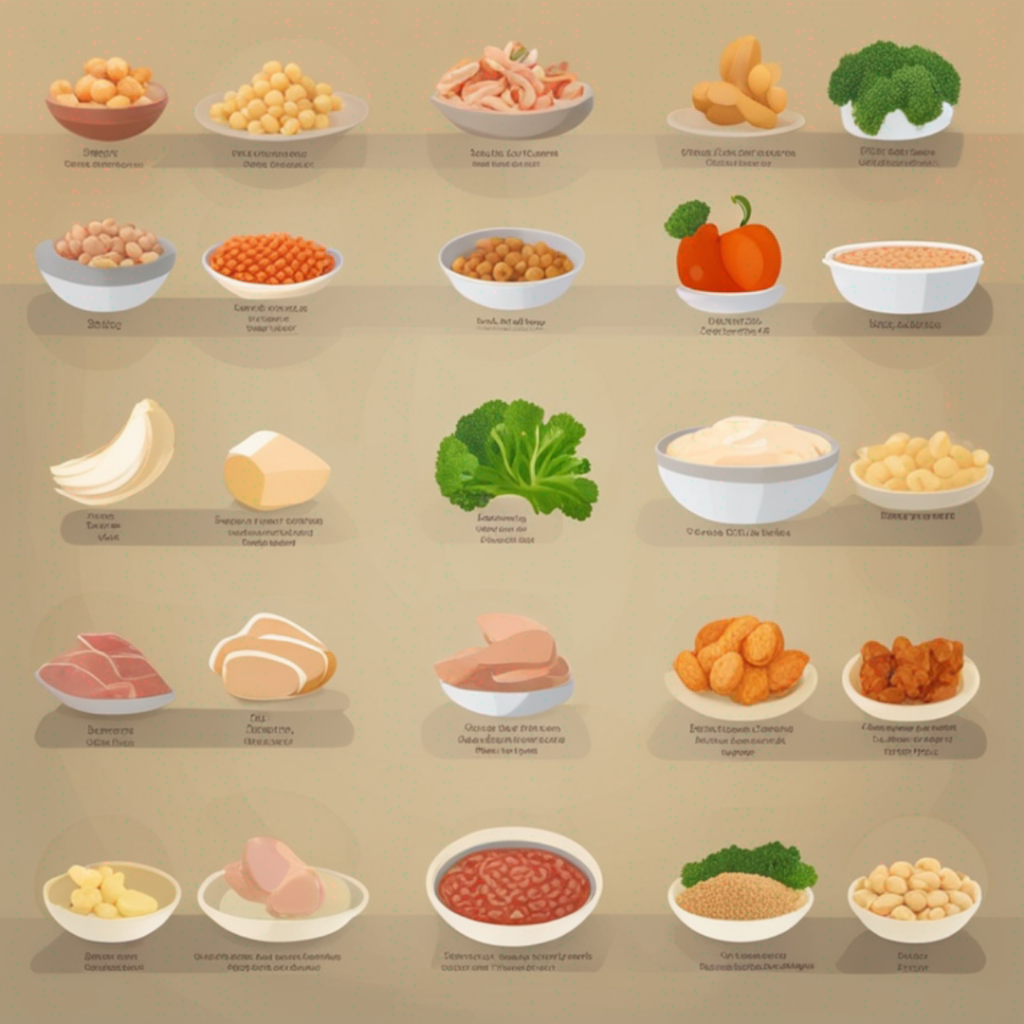Protein is an essential macronutrient that is crucial for human health and well-being. It plays a vital role in building and repairing tissues, supporting immune function, and helping to maintain a healthy weight. For individuals who engage in regular exercise, protein becomes even more important as it is necessary for muscle growth and recovery. In this blog, we will discuss the importance of protein-rich foods and their benefits for workout people.

What is protein?
Firstly, let’s discuss what protein is and how it works in the body. Protein is made up of building blocks called amino acids, which are essential for the body to function properly. There are 20 different amino acids, and the body needs all of them to carry out various functions such as building and repairing tissues, producing enzymes and hormones, and maintaining fluid balance. The body can produce some of these amino acids, but others need to be obtained from the diet. These are known as essential amino acids, and they can be found in protein-rich foods.
Now, let’s discuss the benefits of protein-rich foods for workout people. When we exercise, we create small tears in our muscle fibers. These tears need to be repaired to help the muscles grow stronger and larger. Protein provides the necessary building blocks for this repair process, making it essential for muscle growth and recovery. In addition, protein also helps to prevent muscle breakdown during exercise, which is important for maintaining muscle mass.
Consuming protein-rich foods also helps to support weight management goals. Protein is more satiating than carbohydrates or fats, meaning that it helps to keep you feeling full and satisfied for longer. This can help to reduce overall calorie intake and support weight loss efforts. Additionally, consuming protein after exercise has been shown to increase metabolism and promote fat loss.
what are some protein-rich foods?
Here are a few examples:
- Lean meats such as chicken, turkey, and lean beef
- Fish and seafood such as salmon, tuna, and shrimp
- Eggs and egg whites
- Dairy products such as Greek yogurt, cottage cheese, and milk
- Plant-based sources such as tofu, tempeh, beans, lentils, nuts, and seeds
The amount of protein needed varies depending on factors such as age, sex, weight, and activity level. The American College of Sports Medicine recommends that individuals engaging in regular exercise consume between 1.2-1.7 grams of protein per kilogram of body weight per day. This can easily be achieved through a combination of whole foods and supplements if needed.
In addition to the benefits mentioned above, consuming protein-rich foods can also help to reduce muscle soreness and inflammation after exercise. This is because protein contains amino acids that have anti-inflammatory properties and can help to reduce inflammation in the body.
Another important benefit of consuming protein-rich foods is that they can help to improve bone health. Protein is essential for building and maintaining strong bones, and research has shown that individuals who consume higher amounts of protein have a reduced risk of osteoporosis and fractures.
protein is important for muscle growth and recovery, it should not be the only focus of a workout diet. It’s also important to consume adequate amounts of carbohydrates and healthy fats to provide the body with the energy and nutrients it needs to perform at its best.
Consuming protein-rich foods at the right time can be beneficial for workout performance and recovery. Eating protein before and after exercise can help to provide the body with the necessary nutrients to fuel the workout and support muscle recovery afterwards.
Eating protein before exercise can help to provide the body with the necessary amino acids to build and repair muscle tissue during the workout. This can be especially important for individuals who engage in high-intensity or endurance exercise, as their muscles are under more stress and require additional support.
Consuming protein after exercise can help to kickstart the muscle recovery process and reduce muscle soreness. This is because exercise causes muscle breakdown, and consuming protein afterwards helps to provide the necessary building blocks for muscle repair and growth. Aim to consume protein within 30 minutes to an hour after exercise to maximize its benefits.
While consuming protein-rich foods, workout people should also make sure they are staying hydrated and consuming adequate amounts of carbohydrates to provide the body with the energy it needs to perform at its best.
It’s necessary to consider the quality of the protein sources that you consume. Not all protein sources are created equal, and some may provide additional benefits beyond just their protein content. For example, choosing lean meats or plant-based protein sources can also provide additional nutrients such as iron, zinc, and fiber.
Furthermore, consider the impact that protein consumption can have on the environment. Animal-based protein sources, in particular, can have a significant environmental impact due to the resources required for their production. Choosing plant-based protein sources, such as legumes, tofu, and tempeh, can be a more sustainable choice for individuals who are concerned about the environmental impact of their diet.
Protein is important, but it should not be consumed in excessive amounts. Consuming too much protein can put a strain on the kidneys and liver and may increase the risk of certain health conditions such as osteoporosis and kidney stones. It’s important to aim for a balanced diet that includes a variety of nutrient-rich foods, rather than focusing solely on one macronutrient.
In conclusion, protein-rich foods are essential for workout people as they provide the necessary building blocks for muscle growth and recovery, support weight management goals, and provide a range of other health benefits. By incorporating a variety of protein sources into their diet, individuals can ensure that they are meeting their daily protein needs and supporting their overall health and fitness goals.
